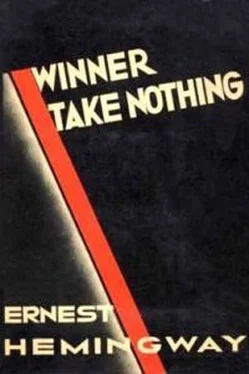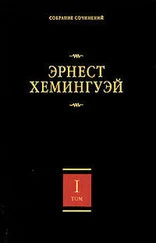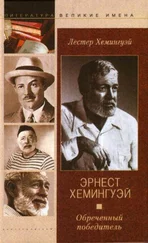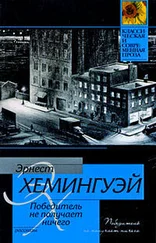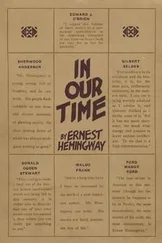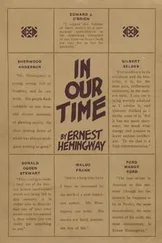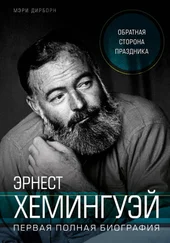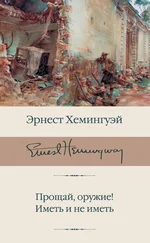1 ...6 7 8 10 11 12 ...28 The Paris part came earlier and he was not frightened of it except when she had gone off with some one else and the fear that they might take the same driver twice. That was what frightened about that. Never about the front. He never dreamed about the front now any more but what frightened him so that he could not get rid of it was that long yellow house and the different width of the river. Now he was back here at the river, he had gone through that same town, and there was no house. Nor was the river that way. Then where did he go each night and what was the peril, and why would he wake, soaking wet, more frightened than he had ever been in a bombardment, because of a house and a long stable and a canal?
He sat up, swung his legs carefully down; they stiffened any time they were out straight for long; returned the stares of the adjutant, the signallers and the two runners by the door and put on his cloth–covered trench helmet.
“I regret the absence of the chocolate, the postal–cards and cigarettes,” he said. “I am, however, wearing the uniform.”
“The major is coming back at once,” the adjutant said. In that army an adjutant is not a commissioned officer.
“The uniform is not very correct,” Nick told them. “But it gives you the idea. There will be several millions of Americans here shortly.”
“Do you think they will send Americans down here?” asked the adjutant.
“Oh, absolutely. Americans twice as large as myself, healthy, with clean hearts, sleep at night, never been wounded, never been blown up, never had their heads caved in, never been scared, don’t drink, faithful to the girls they left behind them, many of them never had crabs, wonderful chaps. You’ll see.”
“Are you an Italian?” asked the adjutant.
“No, American. Look at the uniform. Spagnolini made it but it’s not quite correct.”
“A North or South American?”
“North,” said Nick. He felt it coming on now. He would quiet down.
“But you speak Italian.”
“Why not? Do you mind if I speak Italian? Haven’t I a right to speak Italian?”
“You have Italian medals.”
“Just the ribbons and the papers. The medals come later. Or you give them to people to keep and the people go away; or they are lost with your baggage. You can purchase others in Milan. It is the papers that are of importance. You must not feel badly about them. You will have some yourself if you stay at the front long enough.”
“I am a veteran of the Iritrea campaign,” said the adjutant stiffly. “I fought in Tripoli.”
“It’s quite something to have met you,” Nick put out his hand. “Those must have been trying days. I noticed the ribbons. Were you, by any chance, on the Carso?”
“I have just been called up for this war. My class was too old.”
“At one time I was under the age limit,” Nick said. “But now I am reformed out of the war.”
“But why are you here now?”
“I am demonstrating the American uniform,” Nick said. “Don’t you think it is very significant? It is a little tight in the collar but soon you will see untold millions wearing this uniform swarming like locusts. The grasshopper, you know, what we call the grasshopper in America, is really a locust. The true grasshopper is small and green and comparatively feeble. You must not, however, make a confusion with the seven–year locust or cicada which emits a peculiar sustained sound which at the moment I cannot recall. I try to recall it but I cannot. I can almost hear it and then it is quite gone. You will pardon me if I break off our conversation?”
“See if you can find the major,” the adjutant said to one of the two runners. “I can see you have been wounded,” he said to Nick.
“In various places,” Nick said. “If you are interested in scars I can show you some very interesting ones but I would rather talk about grasshoppers. What we call grasshoppers that is; and what are, really, locusts. These insects at one time played a very important part in my life. It might interest you and you can look at the uniform while I am talking.”
The adjutant made a motion with his hand to the second runner who went out.
“Fix your eyes on the uniform. Spagnolini made it, you know. You might as well look, too,” Nick said to the signallers. “I really have no rank. We’re under the American consul. It’s perfectly all right for you to look. You can stare, if you like. I will tell you about the American locust. We always preferred one that we called the medium–brown. They last the best in the water and fish prefer them. The larger ones that fly making a noise somewhat similar to that produced by a rattlesnake rattling his rattlers, a very dry sound, have vivid colored wings, some are bright red, others yellow barred with black, but their wings go to pieces in the water and they make a very blowsy bait, while the medium–brown is a plump, compact, succulent hopper that I can recommend as far as one may well recommend something you gentlemen will probably never encounter. But I must insist that you will never gather a sufficient supply of these insects for a day’s fishing by pursuing them with your hands or trying to hit them with a hat. That is sheer nonsense and a useless waste of time. I repeat, gentlemen, that you will get nowhere at it. The correct procedure, and one which should be taught all young officers at every small–arms course if I had anything to say about it, and who knows but what I will have, is the employment of a seine or net made of common mosquito netting. Two officers holding this length of netting at alternate ends, or let us say one at each end, stoop, hold the bottom extremity of the net in one hand and the top extremity in the other and run into the wind. The hoppers, flying with the wind, fly against the length of netting and are imprisoned in its folds. It is no trick at all to catch a very great quantity indeed, and no officer, in my opinion, should be without a length of mosquito netting suitable for the improvisation of one of these grasshopper seines. I hope I have made myself clear, gentlemen. Are there any questions? If there is anything in the course you do not understand please ask questions. Speak up. None? Then I would like to close on this note. In the words of that great soldier and gentleman, Sir Henry Wilson: Gentlemen, either you must govern or you must be governed. Let me repeat it. Gentlemen, there is one thing I would like to have you remember. One thing I would like you to take with you as you leave this room. Gentlemen, either you must govern—or you must be governed. That is all, gentlemen. Good–day.”
He removed his cloth–covered helmet, put it on again and, stooping, went out the low entrance of the dugout. Para, accompanied by the two runners, was coming down the line of the sunken road. It was very hot in the sun and Nick removed the helmet.
“There ought to be a system for wetting these things,” he said. “I shall wet this one in the river.” He started up the bank.
“Nicolo,” Paravicini called. “Nicolo. Where are you going?”
“I don’t really have to go.” Nick came down the slope, holding the helmet in his hands. “They’re a damned nuisance wet or dry. Do you wear yours all the time?”
“All the time,” said Para. “It’s making me bald. Come inside.”
Inside Para told him to sit down.
“You know they’re absolutely no damned good,” Nick said. “I remember when they were a comfort when we first had them, but I’ve seen them full of brains too many times.”
“Nicolo,” Para said. “I think you should go back. I think it would be better if you didn’t come up to the line until you had those supplies. There’s nothing here for you to do. If you move around, even with something worth giving away, the men will group and that invites shelling. I won’t have it.”
Читать дальше
Конец ознакомительного отрывка
Купить книгу
